6 Filmmaking Survival Tips from 5 Rising Stars of Indie Film
We can learn a lot from the battle scars of these accomplished directors and producers.
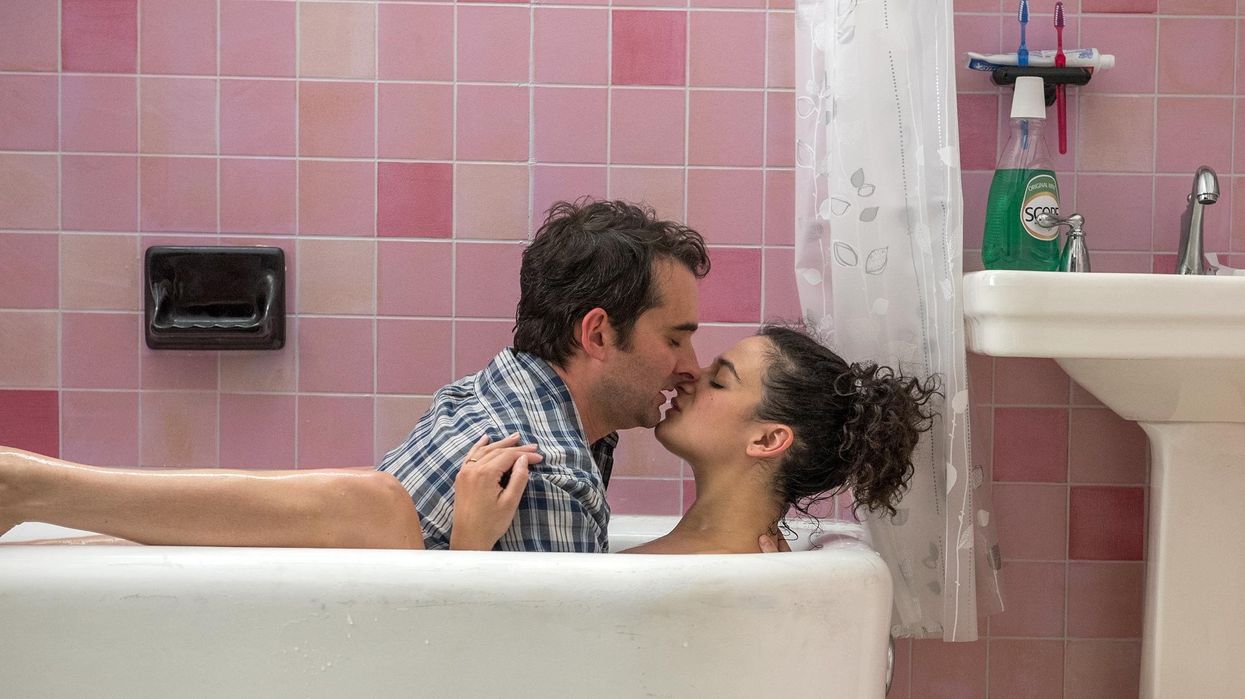
Each year, IFP Film Week offers a unique opportunity to get personal insights from some of the biggest names in indie film. This year, writer/directors Ingrid Jungermann (Women Who Kill), Gillian Robespierre (Landline) and Joshua Z. Weinstein (Menashe) joined producer/director Chanelle Aponte Pearson (195 Lewis) and producer Kishori Rajan (American Fable) to discuss indie film challenges—including how to maintain a (somewhat) balanced life.
All five of these filmmakers are battle-hardened warriors. Each one of them has followed a long, winding path. Each one has had to make sacrifices. Each one has had their share of horror stories. Each one retains a vivid sense of where they’ve come from plus an even deeper appreciation of how they’ve gotten to where they are today—and now they’re here to give us advice.
"Don’t be too egotistical about your work, but go fucking bonkers with it, because you can."
As they tell it, nothing beats hard work…with a hefty dose of personal honesty and stubborn resolve. Plus time for wisecracks.
But first, their backstories.
Ingrid Jungermann
Writer/director of the darkly hilarious RomCom Women Who Kill—which came out in theaters this summer, and is now on VOD—Jungermann is currently working on a subversive new RomCom. Sounds like a good place to be, right? It is good; but even so, it has been a long haul.
She started in theater, then dabbled in film. “Then I decided that grad school would be the smart next move,” she recounted. She went to NYU, made a bunch of shorts, then focused on web-series as a path to bigger projects. She co-created The Slope and then F to 7th, which got a WGA nomination for Best New Media, Short Form. Michael Showalter, one of her NYU producers, was so impressed that he helped her form a team so she could pitch F to 7th as a TV series.
Even so, Jungermann had to rely on student loans to survive. “It was the only way for me to write and direct, even with other jobs,” she admitted. “This past year was the first year where I’ve been able to write and direct for a living. And I just turned 40!”
Chanelle Aponte Pearson
According to hyphenate Chanelle Aponte Pearson, too many RomComs focus on lying and cheating—so she decided to upend the trope with characters in open, honest relationships. Now, she’s producer, director and actress of 195 Lewis, a web series about black, queer, polyamorous romance, and winner of the 2017 Gotham Awards ‘Live the Dream’ grant. She started out producing films for her friend Terence Nance purely by accident.
“I was a financial services program manager when Nance was working on a short,” she recalled. “He was so disorganized—I was like ‘You need help.’ So I came on in a very casual way and helped him, in part because I love spreadsheets. Afterwards he told me, ‘You know you’ve been producing this entire time.’”
She laughed at the memory. “Frankly, I was amazed. But I liked doing it, so I helped him produce An Oversimplification of Her Beauty (2012) on the side, which I also acted in.” She rolled her eyes. “At that point I still had my day job, but I was really tired of writing policy memos. So I founded a production company with Terence, MVMT Films, and did whatever else I could to pay the bills. Editing gigs, what have you. Now I’m here.”
Kishori Rajan
Producer of the boldly dreamy SXSW favorite American Fable—as well as the upcoming HBO political-comedy series Random Acts of Flyness—Kishori Rajan has her own tale of hard knocks. She introduced herself to the audience dryly: “I’m the one with the Indian name.”
Rajan’s passion for film bloomed when she made her first short in high school. She later went to Columbia University, hoping to direct. “It seemed like what everyone wanted to do,” she shrugged. But she soon learned that she preferred producing. “That was ’08, right when the recession started. And all those employers for whom I had interned so dutifully—8 or 9 throughout college—every single one of them was laid off. I had to start from scratch. So I worked a lot of really bad jobs. I was in full survival mode, just trying to pay rent.”
She shook her head. “I think my low-point was a temp job typing up menus in the attic of a midtown deli. I remember being up there, with no AC, and getting word that I wasn’t picked for a shitty assistant job to some doc filmmaker. And slowly walking back to the subway hearing my parents in my head, saying ‘You should be a teacher.’ I think sheer stubbornness kept me going.”
Gillian Robespierre
With two Sundance hits already notched in her belt—Obvious Child (2014) and Landline (2017)—writer/director Gillian Robespierre has proven herself to be a worthy repeat offender. Both of her films are smart, funny female coming-of-age stories. Her own ‘coming-of-age,’ however, was a grind-and-a-half.
Immediately after graduating from SVA in 2005, she started out as a PA on American Gangster. “It was exciting,” she laughed. “But I only lasted two months.”
“Being someone else’s PA is a really tough life,” she confessed. “So I got a desk job at the DGA: a very clerical, pencil-pushing, noncreative job on the outskirts of the film business. But it was hourly. I was there from 10-6, inside. I wrote on nights and weekends. That’s when I made the proof-of-concept for Obvious Child. I made the feature on vacation. Then, when it finally got into Sundance, I used vacation days to go sell it. I was at the DGA for seven years before quitting my day job. Now I have health insurance through the Writers Guild, thank god.”
Joshua Z. Weinstein
Director of his own Sundance hit—the Hasidic New York drama Menashe (2017)—Joshua Weinstein echoed Robespierre’s work ethic…including the downside.
“I had to work my whole life: tiling, carpeting, anything I could do to get by,” he admitted. At one point in high school, when he was on his way to a job interview, an 18-wheeler ran into his car. He went to the ER…and then back to that interview two days later. “I got the job.”
Weinstein shrugged. “But then I wanted to travel the world for free, so I started a DIY punk rock band and started touring. And that led me to making docs.” He smiled, clearly proud of his nomadic past. “I got to go everywhere, I went to the Philippines with the band Journey, I shot docs in Uganda. I learned to watch people’s faces, even when I didn’t understand a word they said. Body language and eyes can express so much.”
Now he’s a DP. “I shoot commercials, branded content, fiction movies, that’s my day job. I shot Clinton and Trump on the campaign trail, shot my own stuff on the side. And even though my film is in 120 theaters as we speak…I still have to work a real job.” He grinned. “Filmmaking is the greatest hobby you can have. I’m a cinematographer and I get to make films for fun in my spare time.”
Now you know what it takes, from five different filmmakers, so if you still have the stomach to stay in the game, here’s our selection of their best indie advice.
"Make yourself valuable, learn skills that you have to get paid for."
1. Develop a hard skill
When asked how beginning filmmakers can sustain themselves financially, the panelists laughed. As they tell it—until you’re repped and at the very highest echelon—you’ll never get recruited to write or direct. So keep dreaming.
“Or marry rich,” Weinstein deadpanned. “I’ve also heard there are a ton of grants that exist for development, but I haven’t gotten any.” “Me neither,” Jungermann moaned. The panelists agreed: development is the hardest place to find money. Most of them write on spec, and if they’re lucky, they’ll pitch and sell an idea.
Rajan put a practical spin on it: “I’m a big believer that you need a hard skill in order to survive when you’re starting out,” she asserted, “one that’s not writing or directing. Make yourself valuable, learn skills that you have to get paid for: editing, producing… It doesn’t even have to be a film skill. You could be a really good waiter—anything that gives you flexibility. Be honest with yourself about what your hard skill could be. And then, whether you’re a great AD, or the fastest assistant editor ever, then you’ll have a network to build on.”
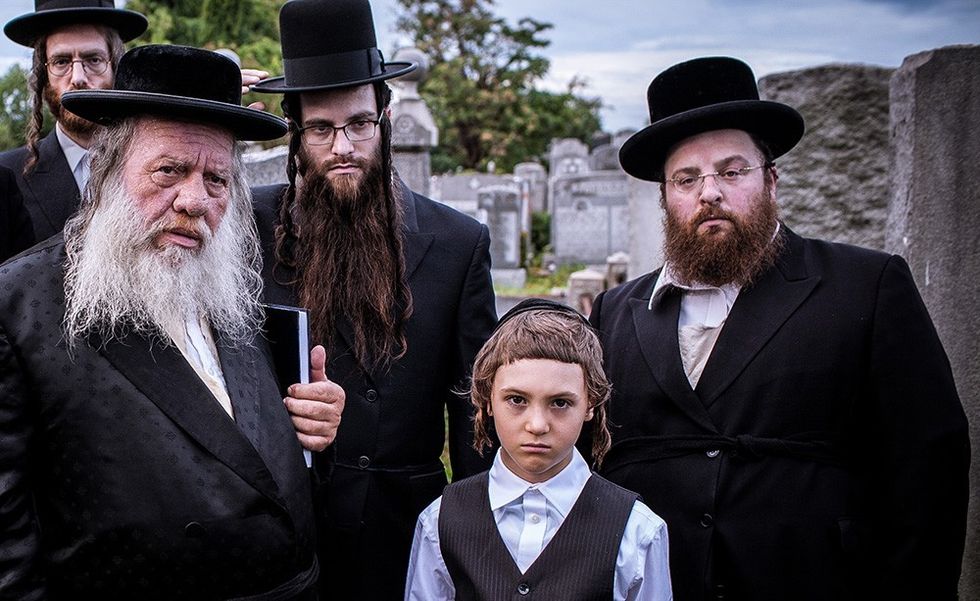
2. Start small
Just think about what kind of story you want to tell on a smaller scale,” Jungermann declared, “and use that to get attention. There’s a lot of interest in web series, short-form, branded content these days. You can use those to leap to bigger projects. Make your own work on the cheap with a 5-person crew: $10,000 for eight episodes. Then pitch it as a TV series, and bring your collaborators up with you.”
Rajan nodded: branded content is a great place to start. “Commercial work has a fast turn-around, it’s very unemotional, with healthy paychecks. I’ve done that myself—and before that I was a development exec for three years. It was all nice and cushy—but it kept me from doing my own stuff. I’d take summers off to do movies, work nights and weekends.”
Even if you have a hard skill, or manage to break in and get hired—prepare for a slog. “There’s no right job out of film school,” Rajan warned, “they’re all gonna suck. Be prepared to quit, or to be fired, but know in the back of your head that if you want to direct your own stuff, you can’t spend your days on someone else’s dream. But it’s also a really good experience to PA for someone else just to see how they work.”
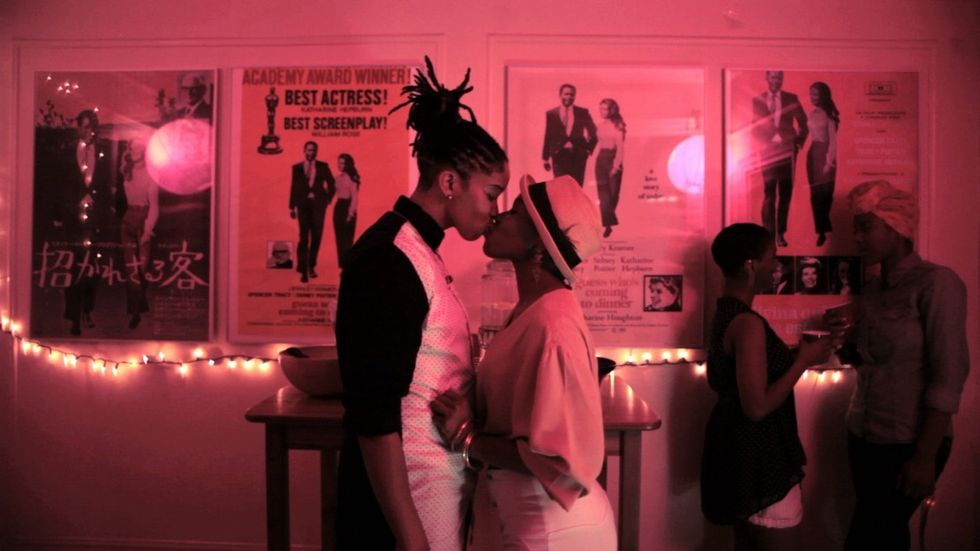
3. Edit your energy
According to Rajan, there are two phases to the indie film life. First comes the phase where you’re so desperate to be noticed—and to get an actual paycheck—that you’ll say yes to everything. Then comes the hard part: at some point, “You need to learn how to say ‘No.’”
After letting that thought sink in, she insisted, “You’re gonna hit a level where you have to edit your energy. You WILL pay your rent at some point. And that’s when you start becoming a better version of yourself, a better artist. You need to be really honest about what your tastes are, what kind of artist you want to be. Five years down the road, you want to be proud of your work, even if it’s not a commercial success.” She laughed. “And that’s outside the luxury of staying alive!”
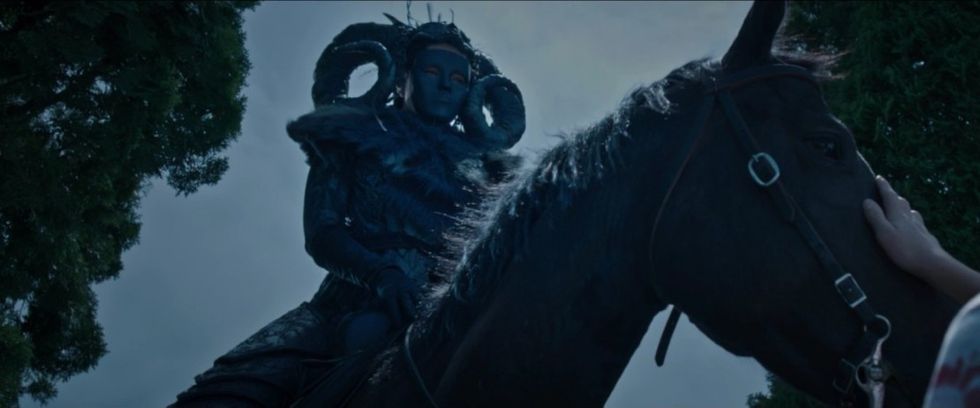
4. Nurture yourself
A fulfilling creative life requires a fulfilling personal life–but as these filmmakers remind us, that’s hard to achieve.
“I know that I can’t show up and do the work if I’m not taking care of myself first,” Pearson explained, “So that’s a priority for me. That shifted how I approach my workday.”
Robespierre agreed: “Whenever I’m putting all my energy into movies, I’m definitely neglecting my family. And vice versa, I’m neglecting my movie when I’m with my daughter and husband.” She sighed. “I had to postpone Landline when I got pregnant. I was so nervous to tell my producers, or anybody, frankly—but luckily, they waited for me. When I was six months pregnant, I even shot a pilot that didn’t get picked up, and I’m glad: I would have had a three-month old baby while trying to make a TV series. A daughter does put things into perspective.”
"I was rejected three times by Sundance Labs, even though my films play at Sundance now."
She added, “And I’m not afraid of the same things anymore. Now, I know patience is important, not rushing through things, waiting for the right project. Filmmaking—and life—is a marathon. If you start to get competitive and worry about how you’re not on the ‘30 Under 30’ list, or the ‘25 New Faces,’ you start to think ‘Fuck, it’s over for me, I’m never gonna make my movie.’ And then you won’t. You’re gonna be paralyzed.” She laughed, reliving the feeling. “I was never on any of those lists. I was rejected three times by Sundance Labs, even though my films play at Sundance now. You just have to drink water—or something heavier—and move forward.”
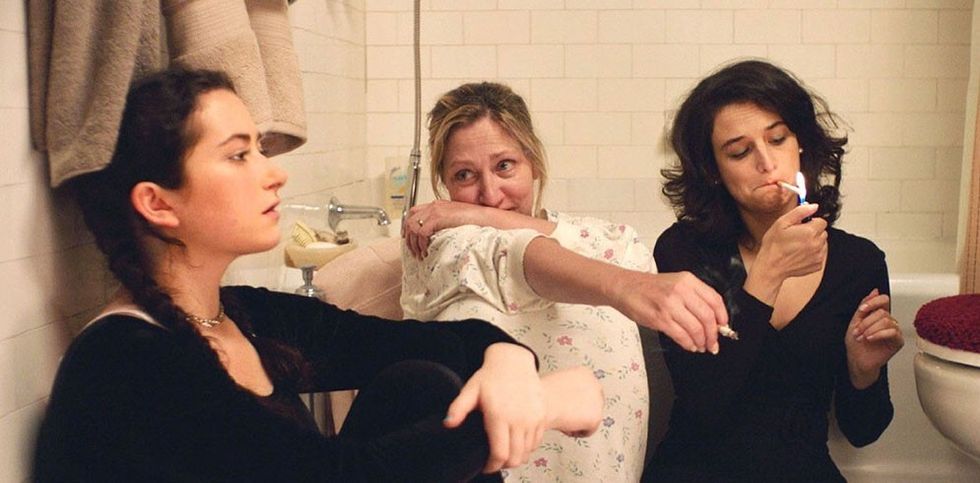
“Filmmaking is an obsession,” she continued. “But sometimes the fire dies and you don’t know how to push forward. Hopefully you have great collaborators, people who will help propel you when you need it. Above all, you’ve gotta stop beating yourself up when things don’t happen as fast as you want.”
Jungermann nodded: been there, done that. “It takes many, many years of just doing the best you can, and sticking with it,” she confirmed. “But don’t let the money panic you. Just try to imagine your worst case financial scenario– And if you can handle that, then you push through.”
For Jungermann—and for all of them—patience is key.
“It is the best job,” she smiled. “But it’s also really lonely, and sometimes depressing. There are major ups and downs, you’re always afraid you’re not doing enough. When you’re in those ‘down phases,’ you have to remember that you’ve done good work before, you’ll do good work again. Be patient with yourself. Even if you’ve accomplished nothing—wasted the whole day, just checking your phone—know that you can move on. Tomorrow is a new day.”
"You have to shut out distractions, and then reward yourself with stuff that inspires: a great film, a great book."
5. Develop work rituals
Based on individual challenges, each one of these panelists has a near-religious work ritual. Take Weinstein’s day job as a DP: “It really throws off my schedule,” he complained. “Sometimes I have weekends during the middle of the week. So when I finally get a chance to be home, I have a very precise regimen. I sit down first thing in the morning with my laptop, coffee poured, phone and radio turned off, door closed, and write for a few hours.”
“You have to shut out distractions,” Jungermann agreed, “And then reward yourself with stuff that inspires: a great film, a great book. That’s better than getting on social media or watching a crappy film that won’t teach you anything.”
Robespierre nodded in sympathy. “Writing is a ritual for me too. When it’s flowing, it’s amazing; when it’s not, it’s really scary. Writing my next project literally starts for me today after this panel. I have to finish Top of the Lake, I’m equally nervous and excited. Writers block is real, and when things slow down it’s almost harder to work, because you actually have to face yourself.”
Pearson grimaced. Writing isn’t easy for her either. “Even if you go to cafés, and there’s people around, it’s still a very lonely experience,” she confessed. “So twice a month I do this creative salon with friends: we bring projects, give each other feedback, make it a shared—and solely creative—experience. No logistics allowed. Ritualizing that has been helpful.” She paused. “I also honor my own personal ritual: I get up, I meditate, I journal. That’s part of my work too.”
Rajan also knows about rituals. “You have to be unapologetic about boundaries, without being an asshole. I used to stay up late to work outside of my time zone, to jump out of dinner for 7PM calls to LA … but now I’m unapologetically in New York, and those are my hours. As soon as I figured out how productive I am at certain parts of the day, and used it to my advantage, I was less anxious.”
Despite their different journeys, all five of these filmmakers have much in common. And at the end of the day, they all agree: anyone who can call themselves independent is extraordinarily fortunate–despite all the negatives. It’s a time to be treasured.
“Go balls-out,” Robespierre exhorted the crowd, “make whatever you want to make. Just make sure it’s a story you really want to tell. If you’re truly indie, you don’t have anyone telling you whom to cast, giving you notes on your story arc. Which isn’t to say you should make things in a bubble: get feedback from smart people. Don’t be too egotistical about your work, but go fucking bonkers with it, because you can.”
Weinstein highlighted freedom of choice. “Just remember: you’re in charge.” His choice? “I cut everything out of my budget just so I can have more shoot days. There’s nothing worse than spending all day on lighting, then getting only two lines from an actor. In my opinion, that’s the biggest mistake you can make.”
Rajan offered her own mantra. “Be your best self,” she advised. “In this community, reputation is way more important than résumé. So don’t be an asshole. I get the same email every week: ‘I’m thinking about hiring this person who says they know you, what was your experience?’ And I’m always honest.” She smiled, looking out at the crowd. “We remember if you’re a good collaborator.”
Jungermann grabbed the last word. “If you are an asshole, and you just wanna hang out with other assholes, there’s a lot of them! Find your tribe.”












